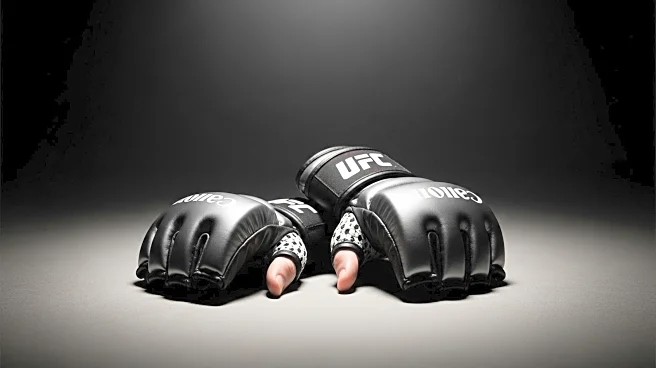What's Happening?
Valter Walker, a prominent fighter scheduled to compete at UFC Rio, is left without an opponent after Mohammed Usman withdrew from their heavyweight bout just hours before the official weigh-ins. The reason for Usman's withdrawal remains unclear, and the UFC is now tasked with finding a replacement to face Walker. Walker, known for his impressive record of three consecutive heel hook finishes, was aiming to continue his streak against Usman. Usman, a winner of TUF 30, was looking to build on his recent victory over Hamdy Abdelwahab, following two previous losses. The UFC Rio event features several other high-profile fights, including Charles Oliveira vs. Mateusz Gamrot and Deiveson Figueiredo vs. Montel Jackson.
Why It's Important?
The withdrawal of Mohammed Usman from the UFC Rio event highlights the unpredictable nature of combat sports, where last-minute changes can significantly impact fighters' preparations and event dynamics. For Valter Walker, the absence of a confirmed opponent disrupts his strategy and training focus, potentially affecting his performance. The UFC must now act swiftly to maintain the integrity and excitement of the event, which is crucial for fan engagement and the promotion's reputation. The situation underscores the challenges faced by organizers in ensuring smooth operations and the importance of contingency planning in sports events.
What's Next?
The UFC is expected to search for a suitable replacement to face Valter Walker, ensuring the heavyweight bout proceeds as planned. This decision will involve evaluating available fighters who can step in on short notice, considering factors such as weight class compatibility and readiness. The outcome will be closely watched by fans and stakeholders, as it could influence the overall success of the UFC Rio event. Additionally, the organization may review its protocols for handling last-minute withdrawals to minimize disruptions in future events.
Beyond the Headlines
This incident may prompt discussions within the UFC and the broader MMA community about the pressures and uncertainties faced by fighters, including the physical and mental demands of preparing for high-stakes matches. It also raises questions about the support systems in place for athletes dealing with unexpected changes, emphasizing the need for robust backup plans and mental health resources.











